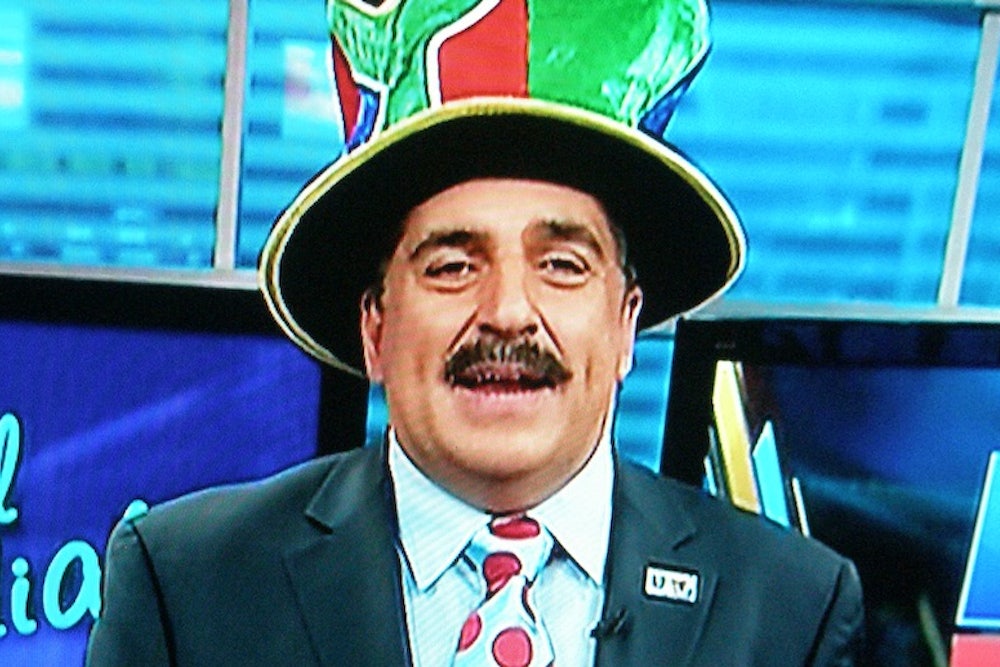Watching the World Cup on Univisión is an exquisite treat—like adding salsa to a finely-cooked steak and sensing its flavor suddenly enhanced.
Even from their nicknames, the Univsión Spanish-language team, described in the network’s online page as “royalty,” is hilarious. It includes by Jesús “El Profe” (The Prof.) Bracamontes, Félix “El Gato” (The Cat) Fernández, and Enrique “El Perro” (The Dog) Bermúdez, all veterans of the sports TV scene. Depending on where in Brazil a game takes place, the team changes, adding other broadcasters as well as commentators like Mauro Camoranesi, an Argentine-born Italian player who was part of the Italian team that won the World Cup in 2006; Javier Castrilli, a referee in the World Cup of 1998; and Marcelo Balbo of the MLS and the U.S. national team. The jewel in the crown, of course, is Pablo “La Torre de Jalisco” (The Tower of Jalisco) Ramírez, known for his famous "¡Gooooool!".
While Mexican Spanish is the dominant one in the coverage (not surprising given that Univisión audiences in the United States are predominantly Mexican), the assortment of accents—Honduran, Argentine, even the one with the Bulgarian flavor of Hristo Stoichkov—is a delight to the ear.
At one point in the Switzerland-Ecuador match, after a shot was barely stopped—“with the tip of the goalie’s fingers”—a Univisión commentator assured viewers that had the goalie cut his nails that morning, the score would be different. And when Brazil, Colombia, Mexico, Honduras, and Argentina played, the Univisión team kept on insisting that the true meaning of the Monroe Doctrine, originally postulated by John Quincy Adams but made famous in 1823 by James Monroe, isn’t that Europe should keep its hands out of American soil but that “América es para los americanos,” meaning that a Latin American team must always win the World Cup when the championship is played in “our” soil, as is the case on this occasion and as it was in Uruguay in 1930 (won by Uruguay), Brazil in 1950 (Uruguay), Mexico in 1970 (Brazil), Argentina in 1978 (Argentina), and Mexico in 1986 (Argentina swept it, largely thanks to Maradona’s pirouettes).
Of course, the Univisión commercials make the joy of watching all the more enthralling. Half-time commercials are frequently about faith. McDonald’s tells people that lucks changes quickly and that today’s loser is tomorrow’s winner. An insurance company invites viewers to tweet against the team they hate the most (for Latin Americans, that would be Argentina, as reported by The New York Times) in order to decrease its chances. And a local voodoo healer advertises a cleansing treatment to those with bad luck; what you need is just call in with a credit card number.
I have no doubt that the zany pyrotechnics of the Univisión team could easily beat any paragraph, chosen at random, from David Foster Wallace’s Infinite Jest in stylistic intensity. Indeed, such has been my pleasure in following it that I haven’t once turned the channel to ESPN. They are the ones broadcasting en inglés, right?
By the way, a few days ago Pope Francis announced that Argentina is sure to win this World Cup. Does he know what he is talking about?
